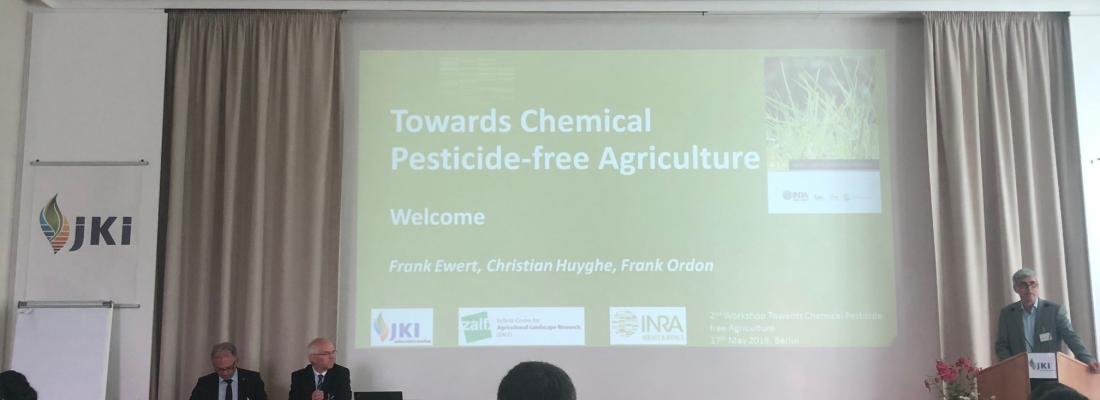Agroecology Reading time 2 min
INRAE becomes a driving force for a European roadmap on pesticide-free agriculture
Published on 05 June 2019

While many scientific studies underline the negative impacts of excessive pesticide use on soil fertility, biodiversity and human health, it is difficult for farmers to forego them altogether. Research must not only help them transition to using fewer products but create alternatives as well.
INRAE was chosen to draw up and lead the national priority research programme called “Cultiver et Protéger autrement” (Growing and protecting crops differently). This programme, launched at the request of the French Ministry of Higher Education, Research and Innovation and the Secretariat-General for Investment, was entrusted to INRAE in July 2018.
In Europe, INRAE has promoted a unique research initiative to reduce chemical pesticides in agriculture, in collaboration with its German partners from the Leibniz Centre for Agricultural Landscape Research (ZALF) and the German Federal Research Centre for Cultivated Plants (JKI). “Pesticide use is a complicated issue for Europe and we need to have an ambitious vision going forward. Action is urgently needed to make an impact while ensuring that agrifood systems remain productive and profitable. There are a variety of options based on systemic and multidisciplinary approaches,” says Christian Huyghe, INRAE's Scientific Director for Agriculture. The “Towards Chemical Pesticide-free Agriculture” framework document, drafted in preparation for Horizon Europe policy debates, offered a starting point for discussion and workshop development. The first workshop was held in Paris on 5 October 2018 to create momentum and establish a European network. No fewer than a dozen European organisations were in attendance.
More than 20 European research institutes are already involved
On 17 May 2019, more than 20 European research institutes gathered in Berlin with the support of the French Embassy. Some 65 participants, including researchers, representatives from the German and French supervisory ministries and the European Commission, met to discuss the forthcoming shared strategy.
Several proposals were made regarding:
- the enhanced use of agroecological regulations to develop more disease-resistant farming systems
- the strong potential of plant breeding
- the use of digital and new technologies and farming equipment
- drivers and roadblocks to the socioeconomic transition
Christian Huyghe emphasised that “we must change our research methods to overcome our knowledge gaps.”
A roadmap will be presented later this year in October during the next workshop in Finland. This event will be open to all stakeholders.
Towards chemical pesticide-free agriculture
"Towards a chemical pesticide-free agriculture” was INRAE's first priority in preparing Horizon Europe: competitive and sustainable agriculture without pesticides, in collaboration with our German colleagues from JKI, Federal Research Centre for Cultivated Plants, and from ZALF, the Liebniz Centre for Agricultural Landscape Research.
